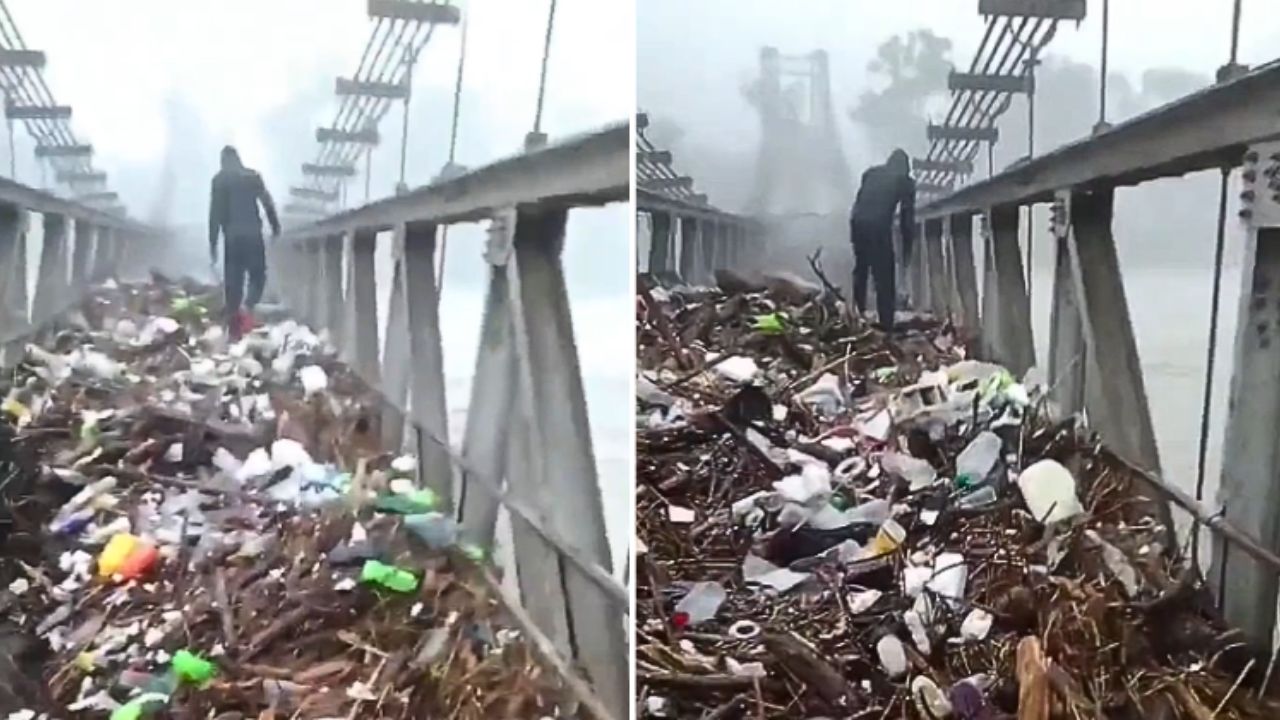Concerns raised by environmental scientists highlight the threat posed by plastic waste to the Himalayan ecosystem and biodiversity in northern Indian hill regions, particularly Himachal Pradesh, which recently experienced flooding.
Local environmentalists, farmers, and residents are alarmed because tourists visiting the Himalayan hills often dispose of plastic waste irresponsibly in the region. This environmental concern is significant as member nations of the G20, including the European Union and India, plan to address environmental issues in the region during their upcoming meeting.
Suresh C Attri, an environmentalist, explained that the region has experienced increased rainfall due to a slight rise in temperature, leading to flooding. He emphasized that the issue of plastic pollution has been a concern since 1995, with efforts to combat it, including recent discussions at the Chief Secretary level. Over 450,000 kilograms of plastic waste have been collected from sensitive Himalayan areas this year, with organizations like Healing Himalayas working alongside NGOs, schools, and college students to address the problem.
Attri advocated for a complete ban on plastic, as plastic waste entering drains during heavy rainfall has contributed to flooding and greenhouse gas emissions due to its interaction with biodegradable materials.
Former Deputy Mayor of Shimla city, Tikender Singh Panwar, echoed the call for a total ban on plastic instead of recycling, emphasizing that plastic waste is a significant concern and has contributed to blocked drains and flooding.
Himachal Pradesh has taken steps to address plastic pollution in the past, becoming the first state in Southeast Asia to ban colored polyethylene recycled bags in 1995. Subsequently, the state banned plastic and polythene carry bags in 2009, followed by a ban on plastic cutlery in 2011. Despite these efforts, plastic waste remains a problem in the region, with tourism adding to the issue. The state’s capital town produces around 2,800 tons of solid waste, including plastic, each month, while Manali produces over 1,100 tons. During the tourist season, an additional 9,000 tons of garbage accumulates, and a significant amount remains unaccounted for, leading to environmental damage in the Himalayan region.
Overall, the state generates over 15,000 tons of waste per month across all twelve districts, with inadequate disposal facilities in most areas except for Shimla and a few other towns.
Also Read: Joint Exercise ‘Nabh Shakti’: Indian Army and Air Force Collaborate”
Catch all the Latest Business News, Breaking News Events, and Latest News Updates on NewsX




















